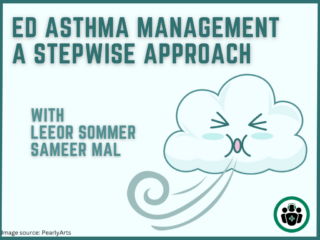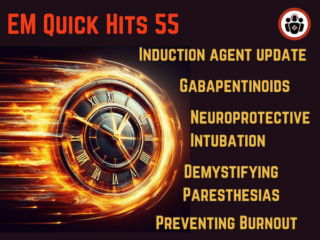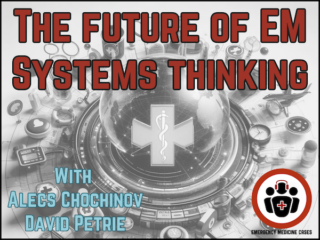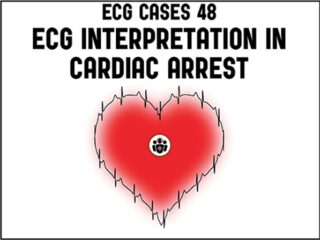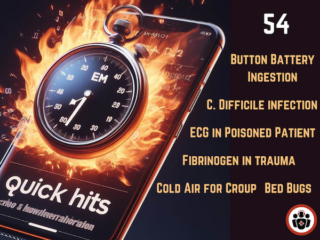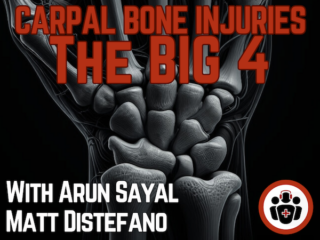EM Quick Hits 56 – Nitroglycerin in SCAPE, REBOA, Diverticulitis Imaging, CRAO, Penicillin Allergy, Physician Personality
In this month's EM Quick Hits podcast: Justin Morgenstern on the first RCT of high dose nitroglycerin in SCAPE, Andrew Neill on Resuscitative Endovascular Balloon Occlusion of the Aorta (REBOA) indications and evidence, Brit Long on indications for CT in suspected diverticulitis, Tahara Bhate on Central Retinal Artery Occlusion (CRAO) and diagnostic error, Matthew McArthur on penicillin allergy labels, myths and penicillin challenges, and Susan Lu on how ED physician personality influences patient outcomes...




